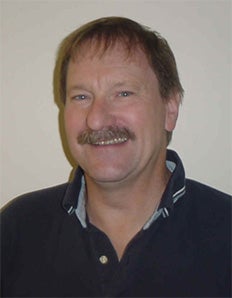Magazine features professor's water-splitting ‘triple play’
University of Colorado Boulder Professor Al Weimer’s unique method of producing hydrogen fuel using sunlight was highlighted in the July issue of Chemical Engineering Progress.
A May report commissioned by the U.S. Department of Energy concluded that Weimer’s approach, which involves mirrors that concentrate the sun’s rays and splits water into its gaseous components (hydrogen and oxygen), is projected to meet future cost targets set by the federal agency.
The process, which is being developed by Weimer’s research team in the chemical and biological engineering department, does not result in greenhouse gas emissions and is more cost effective than competing technologies because the water-splitting reactions occur at lower temperatures and are faster, said Weimer. Also, less energy and fewer active materials are required, resulting in lower costs.
Currently, the lowest-cost method for producing hydrogen is the steam-methane reforming of natural gas, primarily methane. In this process, significant amounts of carbon dioxide – a powerful greenhouse gas – are released into the atmosphere.
Weimer refers to his water-splitting method as a “triple play.” It not only uses renewable resources and produces sustainable hydrogen, but it also can purify brackish into potable water – a byproduct that he says could address water shortage issues in the future.
Weimer directs a research group of three postdoctoral research associates, 12 doctoral students and six undergraduates. He has the largest academic research group in the United States focused on solar thermochemical processing.


